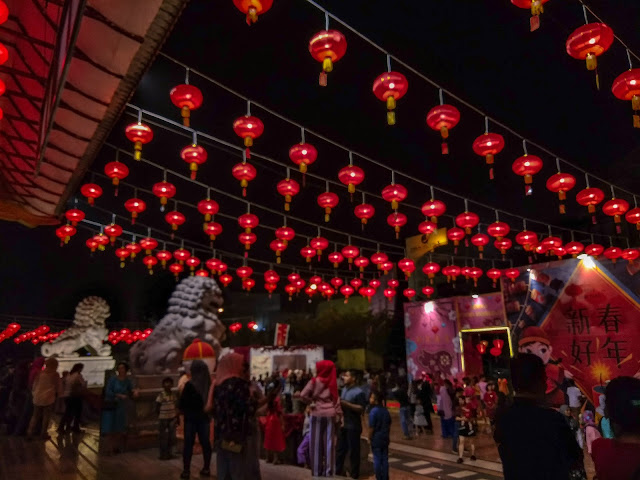Uniquely, pro-China groups always do not match the pro-Taiwan groups, as China and Taiwan are also "hostile". Those who are pro-China are called Ang Kha Chui, which means “red buttocks”. While the pro Taiwan is nicknamed Lam Kha Chui aka blue buttocks. Almost all middle-aged Medan Chinese and older entered one of these groups.
But, over time, their fanaticism and orientation both to China and Taiwan slowly faded. Since the 1990s, the terms Ang Kha Chui and Lam Kha Chui are not heard anymore. The "Indonesianization" process among them occurs naturally. Moreover, many Medan Chinese who are still foreign citizens then choose to become Indonesian citizens, even though they have to go through a complicated process that takes time and money.
HOMELAND
Some Medan Chinese may have pride for China which is currently growing as a new economic giant. Many of them often visit there both for business and just traveling. However, whether visiting or not, for them China remains another country. There is no nostalgia for anything that can link their minds, because they are born and raised in Indonesia. China may continue to record amazing economic growth and offer many business opportunities, but for them Indonesia is the real homeland.
But, both the young and old generation, the only thing that is still blocking in their "Indonesian" is the discriminatory treatment that they are still receiving to this day. One thing that needs to be known is that the Medan Chinese community has a very high sensitivity, especially in terms of dealing with discriminatory attitudes towards their groups. They are very allergic to people who are "anti-Chinese". In fact they have a special designation for such attitudes and behaviors, namely Phai Hua.
In Binjai, a neighboring city that only separated about 20 km from Medan, a few years ago there was news about a food seller who said anti-Chinese words in front of a buyer who was an ethnic Chinese. This story spread quickly by word of mouth. As a result, the food seller was blacklisted by the Chinese community there. It took a long time before the Chinese etnic there wanted to shop at that place again.
In Medan itself, information about the person who behaves Phai Hua also always gets a full response from the Chinese community. Not only against other ethnic groups. Against fellow Chinese ethnic groups that were considered Phai Hua, they would give a minus value. There was once a Chinese figure in Medan giving a statement that was considered cornering his own group. As a result he became a gossip and some Chinese people have a negative image of him, even though what he said contains truth.
DEFENDED BY OTHER ETHNICITIES
After all, the sense of nationalism by Medan Chinese faced a fairly heavy test in May 1998, when the riots occurred in this area which later developed into the "Ganyang China" action. Although it is not as severe as occurred in Java, racial riots in the form of vandalism and looting in a number of areas against shops owned by ethnic Chinese caused trauma in many of them.
This kind of racial riot, both experienced by oneself and heard from the previous generation, has always been a block for Medan Chinese to blend themselves. Some time after the May 1998 riots, several Medan Chinese claimed to have felt alarmed when dealing with other ethnic groups in a crowd. This trauma has just faded after rolling time and the atmosphere is normal.
One of the things that "encourage" Medan Chinese in the May 1998 riots was that not all non-Chinese people showed Phai Hua attitude. In some areas in Medan, Medan Chinese shoulder hand in hand with youth groups consisting of multi ethnicities against looters who came in groups with trucks. As a result, the looters were successfully expelled and the core area of Medan City was relatively safe from vandalism.
Photo by Halim Kosasi on Unsplash


Comments
Post a Comment